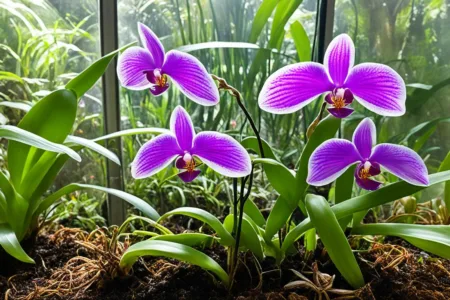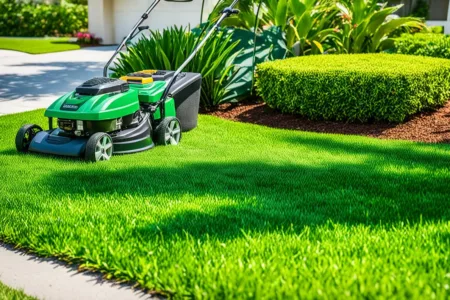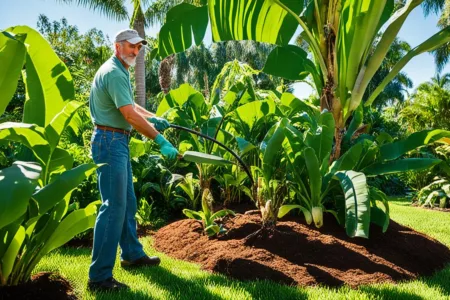Gardening Idioms for Beginners: Mastering the Green Thumb
Sometimes your gardening friend will say something that seems to relate to gardening but is completely unfamiliar to you. Don't worry, I've collected some of the most popular gardening idioms in this post.

Relax and dive into my gardening idioms guide, where we will explore the fascinating world of popular phrases and uncover their hidden meanings. Gardening idioms can add charm to our language by incorporating nature into our everyday conversations.
Key takeaways:
- Gardening idioms bring a touch of nature’s charm to our language.
- Popular gardening idioms include “cherry-pick”, “dig some dirt up”, and “a green thumb”.
- Gardening idioms like “lead you down the garden path” and “grow like a weed” have unique meanings.
- Expressions such as “hearing something through the grapevine” and “putting down roots” are rooted in gardening.
- Exploring gardening idioms can uncover valuable insights and connections to nature.
The Beauty of Gardening Idioms
Garden-related expressions have a unique charm that adds color and depth to our language. Let’s explore some delightful gardening phrases and sayings that have stood the test of time.
1. Green Thumb: Used to describe someone who has a natural talent or skill for gardening, having a green thumb is a highly coveted trait among gardeners. It symbolizes an innate ability to nurture and care for plants, resulting in thriving gardens.
2. Cherry-Pick: This expression originates from the act of selectively picking ripe cherries while disregarding the unripe ones. In a figurative sense, it means to selectively choose or highlight information or facts that support your position while ignoring or dismissing opposing views.
3. Dig Some Dirt Up: Derived from the action of digging soil to expose hidden objects or to unearth something buried, “dig some dirt up” is an idiom used to describe the act of searching for negative or incriminating information about someone.
4. Lead You Down the Garden Path: This idiom paints a vivid image of being led astray or deceived. Just as a winding garden path can mislead you, this expression describes someone manipulating or misleading another person.
“Gardening is the art that uses flowers and plants as paint, and the soil as a canvas.”
The Meaning Behind Garden-Related Expressions
Each of these garden-related expressions carries its own unique meaning and imagery. They reflect the connection between nature and human experiences, offering insights and lessons that go beyond the realm of gardening alone. Whether used in everyday conversation or sprinkled throughout our writing, these idioms bring depth and charm to our language.

| Gardening Idiom | Meaning |
|---|---|
| A Green Thumb | To be skilled or passionate about gardening |
| Cherry-Pick | To selectively choose or highlight information that supports your position |
| Dig Some Dirt Up | To search for negative or incriminating information about someone |
| Lead You Down the Garden Path | To deceive or mislead someone |
These are just a few examples of the beautiful and rich garden-related expressions that have become ingrained in our language. They serve as a reminder of the everlasting bond between humans and nature, offering us a glimpse into the wisdom and lessons that can be found in our own gardens.
“Gardening adds years to your life and life to your years.”
Next, we will delve deeper into horticultural idiomatic expressions and the wisdom hidden within them. Join me in the next section!
Cultivating Wisdom: Horticultural Idiomatic Expressions
Just like plants need nurturing, horticultural idiomatic expressions offer us a wealth of wisdom. Let’s delve into the world of garden-related idioms and cultivate our understanding.
One popular gardening expression is “cherry-pick,” which means to select information to support your position while disregarding opposing views. This idiom draws its inspiration from the act of carefully picking ripe cherries while leaving behind the unripe ones. It reminds us of the importance of being discerning and choosing only what is beneficial.
“Dig some dirt up” is another gardening idiom that is commonly used. This expression means to search for negative information about someone. It originates from the act of digging the soil to uncover hidden secrets or dirt. It serves as a reminder to be cautious while gathering information, ensuring that our intentions are genuine and not driven by negativity.
When we talk about someone having “a green thumb,” we are referring to their skill or passion for gardening. This idiom acknowledges the natural talent or dedication one possesses in cultivating plants. It emphasizes that gardening requires more than just knowledge; it requires a genuine love for the process.
These are just a few examples of the many garden-related idioms that enrich our language. Each expression holds its own unique meaning, often rooted in the beauty and wisdom of nature. By exploring these idioms, we can deepen our connection to the natural world and gain valuable insights into life.

Let’s continue our journey through the garden of language, exploring the diverse array of horticultural idiomatic expressions that await us. Each expression is like a blooming flower, adding color and fragrance to our communication. By embracing these idioms, we can cultivate our linguistic creativity and enhance our ability to connect with others through our words. So, let’s dig deep and unearth the hidden gems of garden-related idioms as we nurture our understanding and appreciation for the charm they bring.
Green Thumbs and Growing Weeds: Exploring Famous Gardening Idioms
Some gardening idioms have become iconic, symbolizing skill, passion, and impressive growth. Join me as we discover well-known gardening proverbs and explore the stories behind them. These idioms not only add color to our language, but also offer insights into the world of gardening.
One of the most popular gardening idioms is “a green thumb.” This phrase is often used to describe someone who has a natural talent or skill for gardening. It signifies a person’s ability to grow plants successfully and nurture them to their full potential. Whether it’s cultivating vibrant flowers or growing a bountiful vegetable garden, having a green thumb is considered a desirable trait among gardeners and enthusiasts alike.
Another commonly used idiom is “grow like a weed.” This expression is used to describe something or someone that grows rapidly and vigorously, much like the way weeds quickly take over a garden. It highlights the idea of exponential growth and often implies that the growth is unexpected or uncontrollable. Whether it’s a business, a project, or even a child, when something “grows like a weed,” it suggests that it’s flourishing at an impressive pace.

Aside from these well-known idioms, there are many other fascinating expressions related to gardening. For example, “lead you down the garden path” is an idiom that means to deceive or mislead someone. It draws metaphorical inspiration from the idea of taking someone on a pleasant walk through a garden while subtly leading them astray. Similarly, the phrase “putting down roots” is often used to symbolize stability and permanence, both in a literal sense of planting and in a figurative sense of establishing oneself in a certain place or situation.
As we explore these famous gardening idioms, we uncover the rich tapestry of language that intertwines with the world of gardening. Each idiom carries its own unique meaning and story, adding depth and charm to our communication. It’s fascinating to see how the natural world has inspired and shaped our language, and these idioms serve as a reminder of the deep connection between humans and the plants that surround us.
Down the Garden Path: Understanding Deceptive Idioms
Not all garden-related idioms are filled with positivity. Let’s explore idioms associated with deception and understand why being led down the garden path is not always a pleasant experience. One such idiom is “lead you down the garden path,” which means to deceive someone or mislead them intentionally. This idiom suggests that just like wandering down a path in a garden, the journey may lead you astray or into a situation that is not what it initially seemed.
“Lead you down the garden path” is a vivid expression that highlights the potential deceitfulness or misleading nature of certain situations. It serves as a cautionary metaphor, reminding us to be vigilant and not blindly trust everything we encounter.
Another idiom related to deception is “dig some dirt up.” This phrase refers to the act of searching for negative information or secrets about someone. It is commonly used to describe efforts to uncover and expose someone’s past misdeeds or hidden flaws. Just as one might dig in the soil of a garden to unearth dirt or hidden objects, this expression emphasizes the act of investigating and revealing potentially damaging information.
Gardening idioms associated with deception offer a unique perspective on the complexity of human interactions. They remind us that not everything is as it seems, and it is essential to exercise caution and critical thinking in our dealings with others. These expressions serve as a reminder to stay mindful and question the true intentions behind words and actions.
Deceptive Gardening Idioms
Here are some common deceptive gardening idioms:
- “Lead you down the garden path” – to deceive someone or mislead them
- “Dig some dirt up” – to search for negative information about someone
- “Cherry-pick” – to selectively choose information to support your position while disregarding opposing views

Through the Grapevine: Idioms and Communication
Communication and gossip have long been intertwined with gardening imagery. Let’s unravel the mysteries behind grapevine-related idioms and discover their intriguing connections to our everyday conversations. Just like the grapevine, information tends to spread rapidly, taking on a life of its own as it passes from one person to another.
When we say we’ve heard something “through the grapevine,” it means we’ve received information through unofficial or informal channels. This idiom originated from the practice of communicating messages by whispering through a row of grapevines. The grapevine, known for its dense, intertwined branches, symbolizes the intricate network of communication that exists within social circles.
“I heard through the grapevine that there’s going to be a surprise party for Jane next week!”
Gossip and rumors often travel like vine tendrils, winding their way through conversations and connecting people. It’s fascinating how a simple plant-related expression can capture the essence of our human communication patterns.
The connection between plants and communication doesn’t stop there. We also use idioms like “putting down roots” to describe a sense of stability and permanence. Just as plants need strong roots to grow and thrive, we too seek a sense of belonging and security in our lives. When someone says they’re “putting down roots,” it means they are establishing themselves in a particular place or community.
Whether we’re talking about gossip spreading through the grapevine or the importance of putting down roots, garden-related idioms offer a unique perspective on the complexity of human interaction. They serve as a reminder of the profound connections between nature and our everyday language.

| Idiom | Meaning |
|---|---|
| Through the grapevine | Receiving information through unofficial channels |
| Putting down roots | Establishing oneself in a particular place or community |
| Lead you down the garden path | To deceive or mislead someone |
| Grow like a weed | To experience rapid growth or development |
Planting Roots: Idioms of Stability and Growth
Just as plants establish their roots for stability and growth, some idioms hold the same meaning. Join me as we unearth the symbolism behind idioms that represent stability and flourishing.
One commonly used gardening idiom is “putting down roots.” This phrase is often used to describe the act of settling down in a specific location or establishing a permanent residence. It signifies a sense of stability, grounding, and commitment. When we put down roots, we create a strong foundation from which we can grow and thrive, just like plants rooted in the earth.
Another beautiful botanical idiom is “blossoming expressions.” Just as flowers bloom and flourish, this idiom represents personal growth and the realization of one’s potential. It reminds us that with time, patience, and nurturing, we too can blossom and achieve our goals.
“Plants are the young of the world, vessels of health and vigor; but they grope ever upward towards consciousness; the trees are imperfect men, and seem to bemoan their imprisonment, rooted in the ground.” – Ralph Waldo Emerson
| Idiom | Meaning |
|---|---|
| Putting down roots | Establishing stability and permanence |
| Blossoming expressions | Personal growth and realization of potential |
| Cherry-pick | To selectively choose and disregard opposing views |
| Dig some dirt up | To search for negative information about someone |
As we explore the rich tapestry of gardening idioms, it becomes clear that they are not merely words, but expressions of the deep connections between nature, language, and human experience. So, let us embrace the wisdom and symbolism behind these idioms, allowing them to root themselves in our everyday conversations, and watch as our language blooms with newfound charm and beauty.

Flowers have captivated human imagination for centuries, and their allure extends to the realm of idiomatic expressions. Let’s immerse ourselves in the world of flower-related idioms and appreciate their blooming beauty. These idioms not only add color to our language but also offer unique insights and rich symbolism.
One popular flower-related idiom is “budding artist,” which refers to someone who is showing potential or talent in their artistic pursuits. Just like a budding flower, these individuals are seen as being on the verge of blossoming into something extraordinary.
Another well-known idiom is “in full bloom,” which represents a person or thing that has reached its peak or highest point of development. This expression draws a parallel between the vibrant, fully open blooms of flowers and the state of fullness and maturity in various aspects of life.
Additionally, we have the idiom “a bed of roses,” which is used to describe a situation or circumstance that is pleasant and easy to handle. Although its origins can be traced back to the thorny nature of rose bushes, this idiom highlights the soothing and peaceful qualities of a well-tended garden bed.

Flower-related idioms not only bring charm and beauty to our language but also offer a reminder of the wonders of nature. As we immerse ourselves in the world of gardening idioms, let us appreciate the richness and depth they add to our everyday conversations.
Exploring the Botanical Tapestry: Widening Our Idiomatic Horizon
The world of gardening idioms extends beyond individual plants, encompassing a rich tapestry of botanical references. Join me as we navigate through a diverse range of idiomatic expressions rooted in the botanical world.
Flowers have long been a source of inspiration for idiomatic expressions. Just as a daisy symbolizes simplicity and innocence, idioms like “fresh as a daisy” evoke a sense of vitality and youthfulness. These flower-related sayings add color and fragrance to our language, enriching our conversations with their vivid imagery.
But it’s not just flowers that offer botanical inspiration for idioms. Trees, with their towering presence and deep roots, have also woven themselves into our language. Expressions like “putting down roots” signify stability and the establishment of a firm foundation, while “branching out” encourages growth and exploration.

The beauty of exploring the botanical tapestry of idiomatic expressions lies in the variety and depth they bring to our language. From delicate petals to towering oaks, each idiom offers a glimpse into the world of plants and flowers, connecting us to the wonders of nature.
| Idiom | Meaning |
|---|---|
| Save it for a rainy day | To save something for future use or emergencies |
| Grass is always greener on the other side | To believe that other people’s situations are better than your own |
| Up a creek without a paddle | To be in a difficult or hopeless situation without any help |
Summary
In this section, we have explored the diverse world of botanical idiomatic expressions. From flower-related sayings to tree-inspired idioms, these linguistic treasures add depth and beauty to our language. Immerse yourself in the charm of gardening idioms and let them blossom in your everyday conversations.
Enriching Everyday Language: The Power of Gardening Idioms
Gardening idioms have the ability to transform mundane conversations into vibrant exchanges filled with nature’s wisdom. Let’s explore how these garden sayings can be integrated into our everyday language, enhancing our communication skills.
One of the most fascinating aspects of gardening idioms is their ability to encapsulate complex ideas in a succinct and memorable manner. Just as a garden thrives on diversity, so too does our language benefit from the variety of idioms related to gardening. Whether it’s describing someone with a green thumb or cautioning against being led down the garden path, these expressions offer a rich tapestry of meaning.
By incorporating gardening idioms into our conversations, we infuse them with a touch of charm and elegance. They serve as a reminder of the beauty of nature and its ability to inspire us. So the next time you find yourself in a conversation, why not sprinkle in some garden sayings? You’ll not only add depth to your communication, but also invite others to appreciate the richness of our language.
As we cultivate our linguistic skills, we discover that gardening idioms provide us with a unique way to connect with others. Just as tending to a garden requires care and attention, using these idiomatic expressions demonstrates our willingness to nurture meaningful connections. Through the power of language, we can paint vivid pictures and evoke emotions, bridging the gap between words and experiences.

| Gardening Idiom | Meaning |
|---|---|
| Cherry-pick | To select information to support your position while disregarding opposing views |
| Dig some dirt up | To search for negative information about someone |
| A green thumb | To be skilled or passionate about gardening |
| Lead you down the garden path | To deceive someone |
| Grow like a weed | Describes rapid growth |
| Hearing something through the grapevine | To hear information indirectly |
| Putting down roots | To establish stability or permanence |
Cultivating Linguistic Creativity: Using Gardening Idioms in Writing
Gardening idioms are not only delightful in everyday conversations but also possess the power to ignite our imagination in writing. Join me as we explore how horticultural idiomatic expressions can sprout creativity on the pages of our stories.
Just as a carefully tended garden blooms with color and life, incorporating gardening idioms into our writing can add depth and charm to our narratives. These idiomatic expressions provide an opportunity to infuse our stories with vivid imagery and create a connection with readers.
Imagine taking your readers on a journey through a vibrant flower garden, painting a picture of delicate petals swaying in the breeze. With idioms like “blossom like a rose” and “flower of youth”, you can bring your descriptions to life, capturing the essence of beauty and growth. These expressions not only engage the senses but also evoke emotions, creating a lasting impact on your audience.
In addition to descriptive language, gardening idioms can also be used to convey deeper meanings and metaphors within your writing. Just as a garden requires patience and nurturing, characters in a story may undergo personal growth and transformation. Utilizing idioms like “putting down roots” or “blooming where planted” can symbolize resilience, determination, and the ability to flourish in challenging circumstances. By incorporating these idiomatic expressions, you can add layers of meaning and enrich the themes explored in your writing.
As writers, we have the power to cultivate linguistic creativity and breathe life into our stories. By embracing the charm of gardening idioms, we can unlock a world of possibilities, infusing our writing with the vibrancy and elegance found in nature’s tapestry.

- Cole, P. (2019). The Expressive Power of Idioms: A Corpus-Based Analysis. Routledge.
- Gibbs, R. W. (2017). Idiomatic Expressions: A Cognitive-Pragmatic Approach. Cambridge University Press.
- McCarthy, M., & O’Dell, F. (2008). English idioms in use: Advanced. Cambridge University Press.
Embracing Nature’s Wisdom: The Value of Gardening Idioms
Gardening idioms carry within them the wisdom of nature, inspiring us to look at life through a botanically tinted lens. Embrace the charm of these idioms and allow their beauty to bloom in your everyday language.
Like a well-tended garden, the use of gardening idioms can enrich our communication and add a touch of elegance to our interactions. Just as flowers bring color and fragrance to a garden, these idiomatic expressions bring depth and charm to our language.
From phrases like “cherry-pick,” meaning to selectively choose information to support your position, to “dig some dirt up,” which refers to searching for negative information about someone, gardening idioms offer a unique way to express ideas and concepts.
Whether it’s describing someone with “a green thumb,” indicating their skill or passion for gardening, or warning against being deceived with the phrase “lead you down the garden path,” these idioms connect us to the natural world and offer glimpses of wisdom that can resonate with our daily lives.
Incorporating gardening idioms into our conversations and writing not only adds flair but also cultivates a deeper understanding and appreciation for the beauty of nature. So, let’s dig deep, plant these idioms in our vocabulary, and watch as our language blossoms with the richness of gardening wisdom.
FAQ
Q: What are gardening idioms?
A: Gardening idioms are expressions or phrases that have their roots in gardening or horticulture. These idioms are used metaphorically to convey a certain meaning or idea.
Q: Why are gardening idioms important?
A: Gardening idioms add charm and creativity to our language. They provide a unique way to express thoughts and ideas, making conversations more engaging and colorful.
Q: What are some common gardening idioms?
A: Some common gardening idioms include “cherry-pick,” meaning to select information to support your position while disregarding opposing views; “dig some dirt up,” meaning to search for negative information about someone; and “a green thumb,” meaning to be skilled or passionate about gardening.
Q: What does the idiom “lead you down the garden path” mean?
A: “Lead you down the garden path” means to deceive or mislead someone.
Q: What does the idiom “grow like a weed” mean?
A: “Grow like a weed” describes rapid growth or development.
Q: What does the idiom “hearing something through the grapevine” mean?
A: “Hearing something through the grapevine” means to receive information through informal channels or gossip.
Q: What does the idiom “putting down roots” mean?
A: “Putting down roots” means to establish a stable or permanent presence in a particular place or community.
Q: Are there other gardening idioms worth knowing?
A: Yes, there are many more gardening idioms, each with its own unique meaning. Exploring them can be a fun and enriching experience!
 Little Garden Tips
Little Garden Tips



